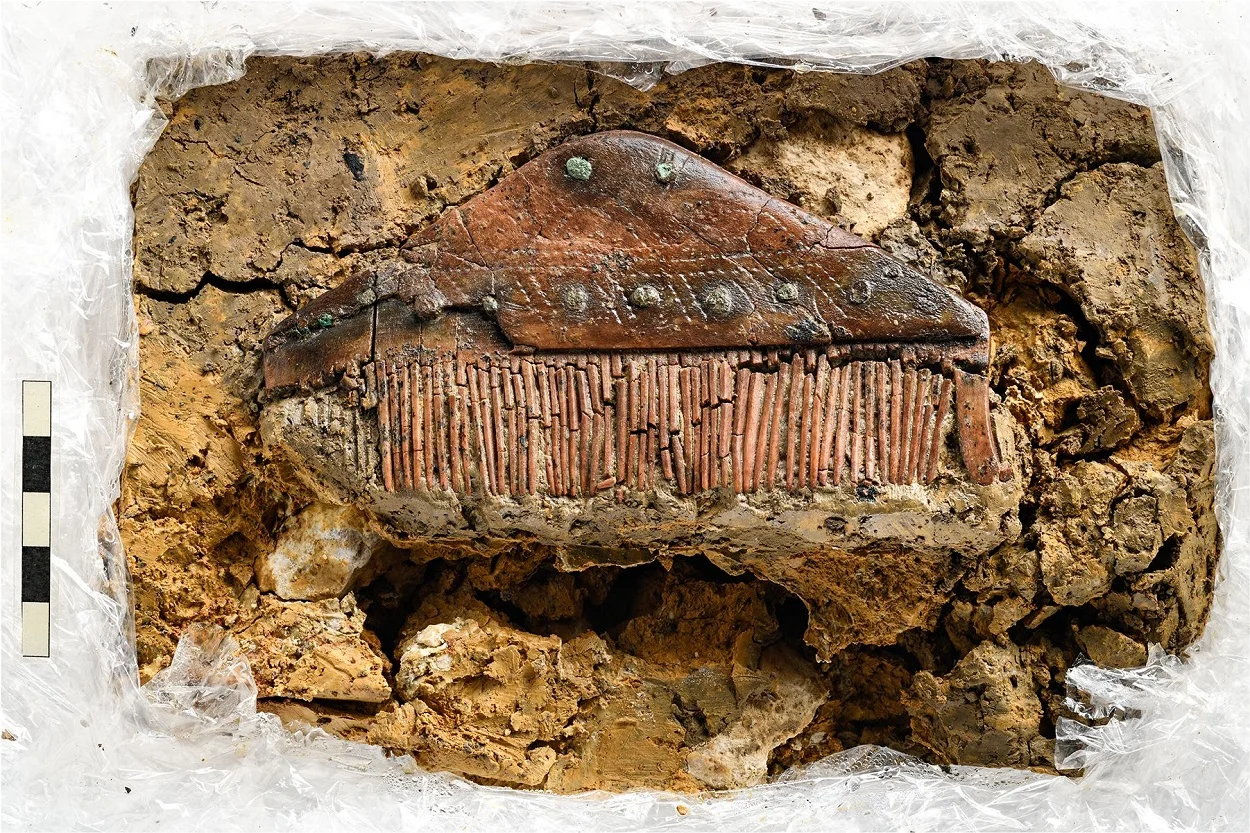Archaeologists from the State Office for Monument Preservation in the Stuttgart Regional Council have discovered an Alemannic chamber grave in Gerstetten, Germany.
The Alemanni (meaning “all men”), were a confederation of Germanic tribes first mentioned in AD 213 by the Roman historian, Cassius Dio.
The Alemanni emerged on the east bank of the Rhine river, where they inhabited a series of territorially defined pagi (cantons).
Archaeologists from ArchaeoBW have been conducting rescue excavations in the small town of Gerstetten in preparation for a new housing development.
Excavations have revealed a wooden construction containing the skeletal remains of an Alemannic male.
Within the burial are funerary offerings of ceramic and glass vessels, a small decorated comb, and a high status glass cup that likely originates from the nearby late Roman fort of Guntia (Günzbug).
According to a press statement by the Stuttgart Regional Council : “There are very few early Alamannic graves in Baden-Württemberg – they are usually found in small groups of five to twelve graves. It cannot be ruled out that further graves will be found in the area to the south, as this area has not yet been investigated.”
The finds were transported to the State Office for Monument Preservation in Esslingen, where the two ceramic vessels have already been restored.
One of the man’s rib bones has been sampled for radiocarbon dating and sent directly from the excavation site to a laboratory in Mannheim. The results confirm the typological dating of the grave goods, indicating that the man likely died between AD 263 and 342.
Header Image Credit : Gizem Dakmaz
Sources : Stuttgart Regional Council





